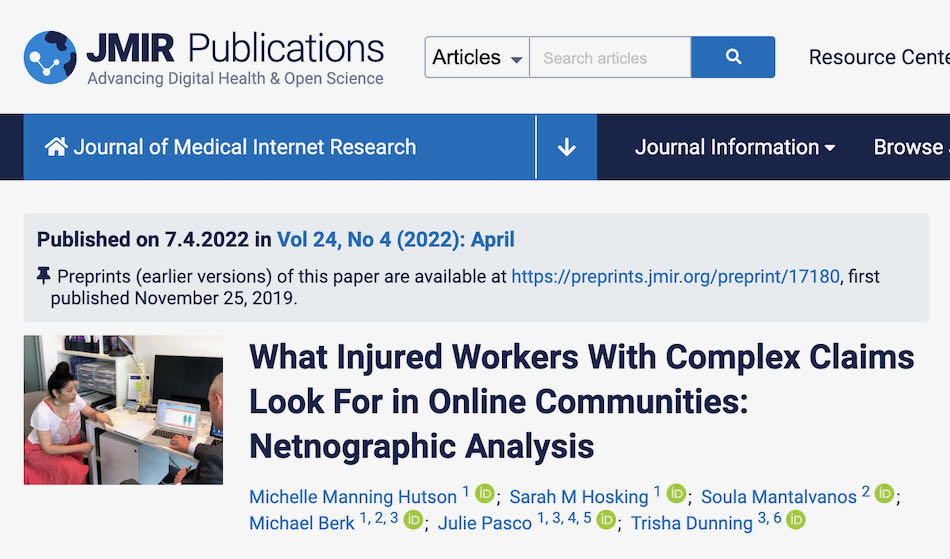My Health Story founder, contributes to a paper about self-management and self-care with regard to managing complex injuries and workers’ compensation claims.
What Injured Workers With Complex Claims Look For in Online Communities: Netnographic Analysis
Abstract
Background: Improved understanding of social constructs around injury may help insurance case managers to understand how best to support people after injury.
Objective: This study sought to explore what people who sustain work-related injuries may seek from online communities. The study highlights potential opportunities for improved engagement with insurance case management practice.
Methods: An observational netnographic analysis was undertaken on anonymous, publicly available messages posted on Australian message boards. All research data were drawn from anonymous, online communities. A person (author SM) with experience of making a claim through an Australian workers’ compensation system and online engagement was involved in study conception, design, and analysis. Data were analyzed using NVivo12 in an iterative, multistage process including coding, journaling, and member checking. A total of 141 people were engaged in discussion across 47 threads housed on 4 Australian forums.
Results: In this qualitative study, themes emerged from the data, describing how injured workers use online communities to help make decisions, get support, and solve problems. The key motivators for action and engagement were seeking information, connection, or justice. Establishment of relationships was a key mediator of each of these parameters.
Conclusions: Some work-related injuries may involve medical and medicolegal complexity as well as changed lifestyle and routine during convalescence and recovery. The mechanism used by some injured workers to seek information and problem solve suggests a capacity for self-management and self-care after work-related injury. Netnography provides information on a community that may not regularly engage with research because of the complexity of their situation and their vulnerability.
J Med Internet Res 2022;24(4):e17180





